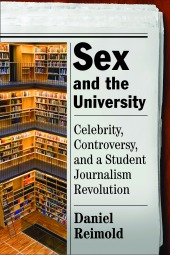Staffers at The Famuan, the student newspaper at Florida A&M University, will not publish their first issue of spring semester early next week as planned. Instead, on administrative orders, editorial operations at the paper have been delayed until the end of the month. The adviser of the paper at the Tallahassee school has also been removed. And Famuan staff have been told they all must reapply for their positions and “undergo training in media law and ethics . . . [and] more general journalism principles.”
—
The decision by Florida A&M School of Journalism & Graphic Communication dean Ann Kimbrough comes roughly a month after a student filed a lawsuit against the paper alleging defamation. The suit contends the Famuan mishandled a portion of its reporting surrounding the November 2011 hazing death of Florida A&M music student Robert Champion, an incident that has placed the university in a harsh, prolonged national spotlight.
—
As Sara Gregory reports for the Student Press Law Center about the content under contention, “The December 2011 article incorrectly stated that Keon Hollis, a fellow drum major, had been suspended in connection with Champion’s hazing death. No disciplinary action was taken against Hollis, according to a correction published by the paper in February 2012. The original article has been removed from the paper’s website.”
—
According to the Tallahassee Democrat, the suit’s specific argument: “[T]he student newspaper failed to ‘exercise ordinary care’ [when reporting on the Hollis allegation], lacked a credible source for its information, and failed to investigate what amounted to ‘nothing more than unverified and unsubstantiated rumor and gossip.'”
—
—
Along with the pending lawsuit, there have apparently been issues concerning the eligibility of students involved with the Famuan and other student media and journalism organizations. According to Kimbrough, a sizable block of students in the past have not met basic enrollment or GPA requirements, a shortcoming current Famuan editor-in-chief Karl Etters acknowledges but says was fixed this past fall.
—
Meanwhile, the timing of Famuan adviser Andrew Skerritt’s removal is apparently “just a coincidence,” according to Kimbrough. It is tied to a “personnel issue” no one is speaking about publicly so far. Skerritt is also a journalism prof. at Florida A&M.
—
Etters told the Tallahassee Democrat yesterday about the pub’s postponement: “It kind of takes the wind out of your sails. . . . It will help show the public we are taking strides to be a more solid publication. Ultimately, I think it will be a good thing to see more people trained, but it hurts a little bit.”
—
—















